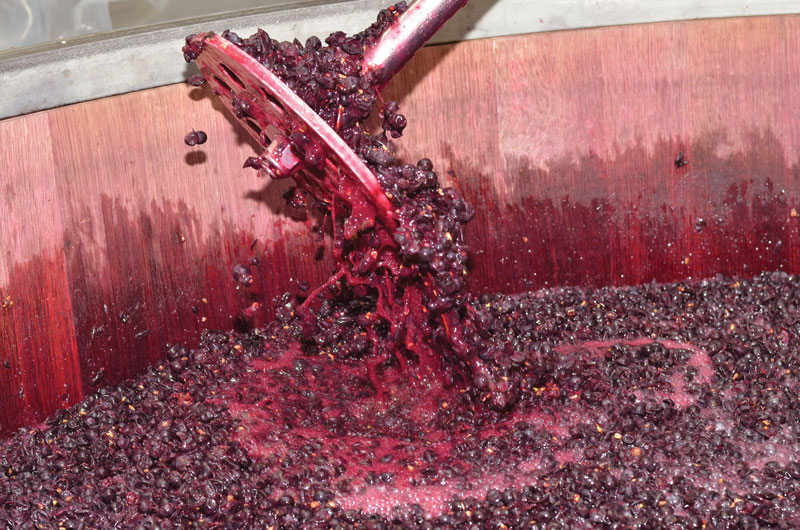Wine Wizard
Chlorine In My Wine
Oh dear. I fear that your wine has been contaminated not just with chlorine, but with the dreaded TCA, or tri-chloroanisole aroma defect. Also known as the “corked” aroma, TCA is the
Dealing With High Brix Grapes
You definitely want to water down that high-sugar juice before you pitch your yeast. High Brixes lead to high alcohols, which lead to yeast that just can’t complete a fermentation. Stuck fermentations
Is Potassium Sorbate In A Port Necessary?
I’m with you. If I was making a Port-style wine and it was 20% alcohol and 100–150 g/L residual sugar (10–15%) I would forgo the potassium sorbate altogether. I am not a
The Facts About Wine Headaches
I’ve seen a few of these kinds of articles (ahem, I mean advertisements) floating around on the internet and it always results in an epic Wine Wizard “facepalm” upon reading. For starters,
Screwcap Closures
Those are all great questions, let me see which order I’ll tackle them in. Firstly, we discuss corks for the most part on the pages of WineMaker Magazine not because they’re the
Sniffing The Cork
You are more in the right here than your brother; when buying wine at a restaurant you really just smell and taste the wine. If the wine smells and tastes fine to
Yeast Pitching Rates
Good for you for branching out. Apple cider has astronomically increased in popularity in the United States in the past few years and I see an increasing number of wineries trying their
Dealing With A Copper Problem
That’s too bad that you added more copper sulfate than you intended to. Copper is an effective, legal, and ancient (the Romans knew about its curative powers in winemaking) tool for reducing
Calculating Residual Sugar
That’s certainly an interesting question and one for which the short answer is “no such equation exists.” The longer answer attempts to help explain why, even though you think you should have
Making White Zinfandel
Funny you ask this question as I’ve just now got three tanks full of 2016 Monterey Pinot Noir rosé fermenting in the winery. White Zinfandel, contrary to what some folks think, is
Dealing With Volatile Acidity
Not knowing any more information than you give above, it’s tough to make specific recommendations so I’ll start with the general ones. Whenever you suspect VA (volatile acidity, or the production of
Testing for MLF Completion
In the old days we would use paper chromatography to monitor the completion of malolactic fermentation (MLF). We dotted little drips of the sample wine, along with liquid standards of malic and
Red Wine Stabilization
Ever open a bottle of red wine you’ve lovingly saved for 20 years only to be disappointed as a brick-orange liquid followed by a brownish sludge falls into your glass? The issue
Evaporation Clarification
Thanks for clarifying your question a little bit. I am glad to hear you regularly top off your barrels, it’s a practice all of us need to do. Alcohol and water definitely
Oak Barrel Seepage
I’ve certainly had the odd leaker (or three) but I’ve never experienced trans-stave leakage of the scale that you describe. Before I delve any deeper, I first of all would like to
Allergic To Sulfites
Certainly you can try to pasteurize (heat at a certain temperature for a certain amount of time) your wine if you like. Many foods and beverages (like milk) are so heat treated
Can Lysozyme Arrest MLF?
In my day job in Napa, California (as Winemaker for Garnet Vineyards as well as other consulting projects) I bottle plenty of “partial ML” Chardonnay every year and love the style. In
Late Malolactic
To shed light on your query, the Wine Wiz consulted the Winemaking Magic 8 Ball™ and the answer that floated to the top was, “Outlook not good.” If your 2010 Zinfandel still
Overspiced Wine Situation
There’s nothing like a wine with what I call “the elbows sticking out” to ruin one’s mood. Especially frustrating is when one has followed a recipe or kit instructions to the letter
Soapy Taste In Wine
Though tough to define as it can smell different to everyone, there is unfortunately no wine lab analysis panel you can run that says, “Yessir, you’ve got an over-abundance of Ivory Soap
Fining Fruit Wines
The short answer is that yes, I would absolutely cut down on the amount of clarifying agent you use if you don’t have enough wine volume for the recommended 5 gallon (19
Perfecting Pyment
Congrats for breaking out of the mold and taking it upon yourself to adapt a recipe to your own preferences! I always love it when readers, and my own winemaking buddies, take
Making Dry Muscat
Sounds tasty to me! I love a dry (or even off-dry, maybe with residual sugar of around 5 g/L), crisp Muscat wine. Historically, Muscats have been used in many wine types, from
Fun With Wine Filtration
The fun of filtration! I’ll deliver the bad news to you and my readers first by telling you that really no matter how tight of a pore size you use to filter
Kombucha In My Winery?
Just like I would not let a buddy of mine do any Brettanomyces beer-brewing experiments in my winery, so should you not do Kombucha and wine together in your kitchen (or garage)
